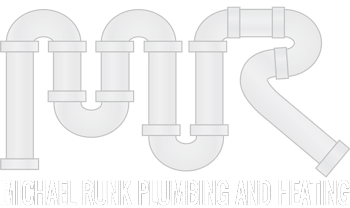Frozen pipes are one of the most common and costly problems homeowners face during winter. When water inside your pipes freezes, it expands, which can lead to bursts, flooding, and expensive repairs. Fortunately, with a few proactive steps, you can protect your plumbing system from the winter chill.

1. Insulate Your Pipes
Why it matters: Exposed pipes in unheated areas like basements, garages, and crawl spaces are at higher risk of freezing. Adding insulation provides an extra layer of protection against the cold.
How to do it:
- Wrap pipes with foam pipe insulation — available at most hardware stores.
- For additional protection, use heat tape or heat cables specifically designed for pipes.
- Focus on pipes near exterior walls, windows, and unheated spaces.
2. Seal Gaps and Cracks
Why it matters: Cold air can seep into your home through gaps and cracks near pipes, lowering temperatures around them and increasing the risk of freezing.
How to do it:
- Use caulk or spray foam to seal gaps around windows, doors, and where pipes enter your home.
- Add weather stripping to doors and windows in unheated areas.
- Check for and close any openings around outdoor faucets.
3. Keep Your Thermostat Consistent
Why it matters: Fluctuating indoor temperatures can contribute to freezing pipes, especially when the house gets too cold during the night or while you’re away.
How to do it:
- Set your thermostat to no lower than 55°F, even if you’re not home.
- Consider using a programmable thermostat to maintain consistent temperatures.
4. Let Faucets Drip
Why it matters: Running water is less likely to freeze. Letting your faucets drip slightly can relieve pressure in the pipes, reducing the chance of a burst if freezing occurs.
How to do it:
- Identify vulnerable faucets, such as those connected to pipes running along exterior walls.
- Open the tap to allow a small, steady stream of water to flow during extreme cold.
5. Disconnect and Drain Outdoor Hoses
Why it matters: Water left in outdoor hoses can freeze and expand, putting pressure on your indoor pipes and causing them to burst.
How to do it:
- Disconnect all garden hoses from outdoor spigots.
- Drain hoses and store them indoors until spring.
- Use insulated faucet covers to protect outdoor spigots.
6. Open Cabinet Doors
Why it matters: Pipes located under sinks or behind cabinets can benefit from the warmth of your home when you leave the doors open.
How to do it:
- Open cabinet doors under sinks in the kitchen, bathrooms, and laundry areas.
- Keep the space around pipes clear to allow warm air to circulate.
7. Know Where Your Shut-Off Valve Is
Why it matters: In case of a burst pipe, shutting off your water quickly can minimize damage.
How to do it:
- Locate your home’s main water shut-off valve and make sure it’s accessible.
- Ensure all household members know how to turn it off in an emergency.
Call Michael Runk Plumbing and Heating for Help
Taking steps to prevent frozen pipes can save you time, money, and stress during the winter months. However, if you suspect a pipe has frozen or burst, it’s essential to act fast. At Michael Runk Plumbing and Heating, our experienced team is here to provide expert assistance and get your plumbing back working correctly.
Need help winterizing your pipes or dealing with a plumbing emergency? Contact us today to schedule a service appointment. We’re here to keep your home safe and warm all winter long.
